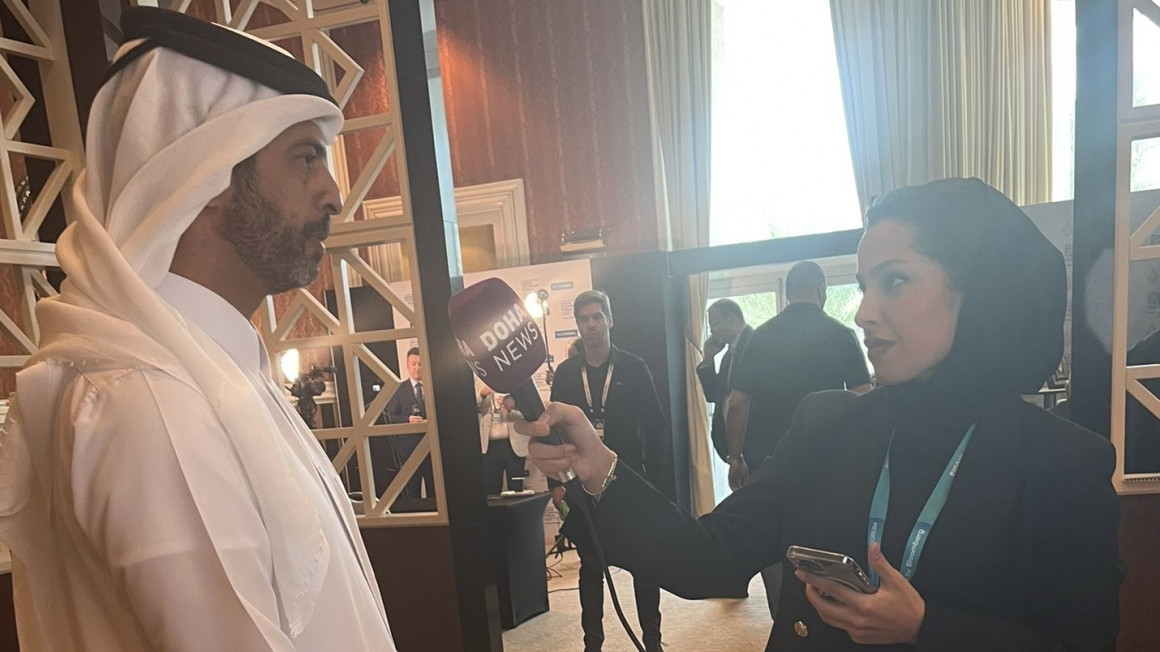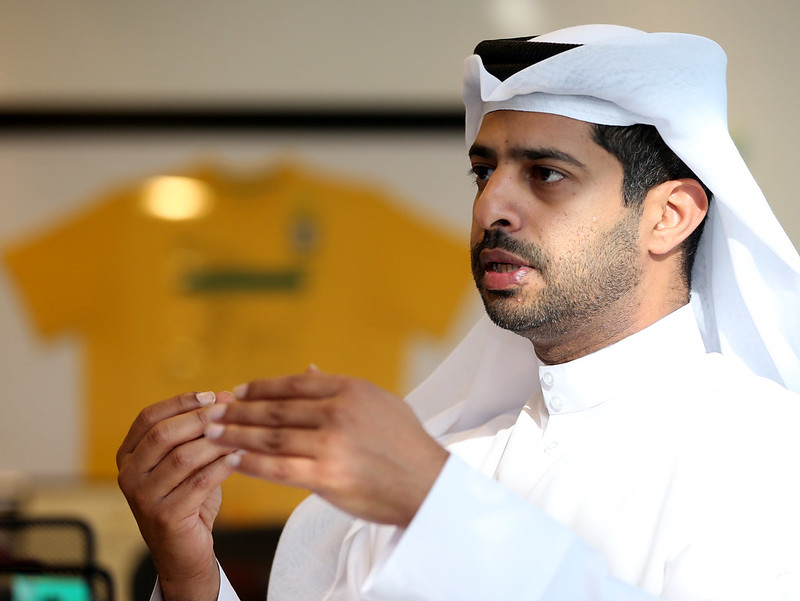Qatar is adding the final touches to seal the ribbon on the FIFA World Cup Qatar 2022 due to be held in November.
FIFA World Cup Qatar CEO Nasser Al Khater said Qatar has long been a regional sports hub hosting major events even before winning the bid to host the tournament back in 2010, in an exclusive interview with Doha News at the sidelines of this year’s Qatar Economic Forum.
“In 2006, we hosted our first major event, the ‘2006 Asian Games’. Since then we’ve hosted over 600 international and regional events, so if we look at sports I mean obviously the World Cup is the biggest but hosting the Handball World Championship, hosting the IWF Athletics World Championship, hosting Formula 1 now for the next 10 years,” Al Khater detailed.
“Qatar has been a regional powerhouse in sports and will continue to be so,” he told Doha News, suggesting that the Gulf state will continue to host sports events even after the 2022 FIFA World Cup.

While addressing the major football tournament in a panel discussion at QEF, Al Khater pointed to increasing brand value for Qatar as well as becoming a tourism destination as major indicators for a successful World Cup.
“In relation to the return of the World Cup there is no direct return, it’s an intangible return so the first and major one is brand, brand value and also an increase in tourism, and to help our friends in tourism to help them achieve their goals in terms of increasing tourism here in Qatar,” he said.
“Really it’s about increasing brand value for Qatar and making it a destination for tourism are the two major indicators of the success of the World Cup here in Qatar.”
Also participating in the session, titled “Sports and Tourism: A Win-Win for National Growth,” Chief Executive at Global Counsel Gregor Irwin said the World Cup is a unique moment for Qatar.
“How do you exploit that unique moment? The trick is to start early and to be focused during the event itself and then actually to follow through,” Irwin noted.
Speaking to Doha News, Al Khater quelled concerns on whether Qatar is prepared with just five months to go, saying: “Stadiums are ready, training sites are ready, all the transportation plans are in place.”
Pointing to the last minute “window dressing” of the preparation for the World Cup, Al Khater said final touches are being made “to welcome the fans.”
The World Cup has “transformed the country over the past 10 years. The development we’ve seen has been accelerated, [which] was part of the 2030 vision, the development of the country, diversification away from the hydrocarbon industry, and the World Cup has been underpinning this development,” Al Khater explained.
One of the key objectives for the World Cup back in 2010, was to “really design the legacy of the stadium prior to designing the stadium itself,” he told the panel.
As a preliminary step, relevant authorities paid a visit to several areas in Qatar to grasp an idea about the community’s needs in a bid to capture those elements for the building of the stadiums.
“Depending on the location of the stadium and depending on what the communities needed at the time we decided to build those into the stadiums,” Al Khater said.
As an example, for the the Al Janoub Stadium in the south of the country, the community in that area “needed more leisure activities, community centres, wedding halls,” therefore, through surveys and site visits, the authorities took the necessary measures to ensure the community’s needs are met.
Also addressing some of the incessant criticism Qatar has received since being placed under the international spotlight after winning the bid to host the major tournament, Nasser Al Khater told Doha News: “The criticism has been there from 2009 when we started bidding for the World Cup and has continued and has really become more ferocious as time went by.”
“I’m fully confident that by the time the World Cup starts it’s all gonna be about football,” the major sporting CEO said.
While at the World Economic Forum in Davos last month, Qatar’s Amir Sheikh Tamim bin Hamad Al Thani shed light on the unfair criticism of the Gulf country by the west over its hosting of the 2022 World Cup.
“For decades now, the Middle East has suffered, from discrimination. And I have found that such discrimination is largely based on people not knowing us, and in some cases, refusing to get to know us,” said Sheikh Tamim.
Doha has faced international scrutiny over conditions for migrant workers in the country and the lack of laws to protect them. However, the Gulf state has since introduced historic reforms over the past years in an effort to ensure the rights of workers are respected and upheld.
Some of the reforms included the dismantling of the controversial Kafala system that stopped workers from freely changing jobs. Another is the region’s first ever non-discriminatory minimum wage law, introduced last year.







